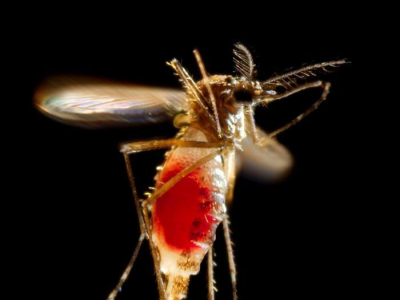Apr 19, 2012 (CIDRAP News) – In 2011 the United States saw the highest number of measles cases in 15 years, four times higher than a typical year, with many of the cases linked to foreign travel, especially to Europe, federal health officials said today.
The US Centers for Disease Control and Prevention (CDC) said it received reports of 222 illnesses from 31 states, a total that included 17 outbreak clusters. The CDC detailed its findings today in Morbidity and Mortality Weekly Report (MMWR).
News of the jump in measles comes as many Americans are preparing to travel to Europe this summer and as several states debate relaxing school vaccine exemptions, a factor that plays a role in susceptibility to vaccine-preventable diseases such as measles.
At a media briefing on the report today, Anne Schuchat, MD, director of the CDC's National Center for Immunization and Respiratory Diseases, said that measles is an extremely contagious disease that can be deadly in 1 to 3 of 1,000 infected children, despite good treatment.
She said one in three of the 2011 US measles patients had to be hospitalized, and each case prompted a vigorous public health response.
She attributed the rise in US cases to two factors, imported disease—especially from some of the countries such as France and Spain that are popular travel destinations—and susceptible unimmunized people.
The United States eliminated the active transmission of measles in 2000, and the immunization level against the disease is still high at 90%. "But measles is good at finding those who aren't protected," Schuchat said.
Another problem is that many doctors have never seen a measles case before, which may have delayed the diagnosis of some of the cases and required multiple trips to clinics before the disease was identified, Schuchat said.
Fifty of the cases were linked to declining or getting an exemption from the vaccine for personal, philosophical, or religious reasons, Schuchat said. "It's important for families to know that measles is still a threat."
According to a recent report in American Medical News, two states are considering tightening philosophical exemptions for school vaccines, but eight states are considering relaxing them. Schuchat said it's important for communities to be aware of disease threats, and she said health officials are learning more about exemption policies and disease rates. For example, she said more pertussis (whooping cough) outbreaks appear to be occurring in communities that have broader exemption policies.
Schuchat said next week the CDC is observing National Infant Immunization Week, which will include efforts to promote immunization and celebrate the achievements of immunization partners and programs. The observance will run parallel to the first World Immunization Week, a global effort led by the World Health Organization to promote vaccination, access to immunizations, and cross-border cooperation on campaigns.
The CDC recommends measles, mumps, and rubella (MMR) vaccine for all children at 12 to 15 months, with a second dose given at 4 to 6 years. Babies age 6 months and older who will be traveling internationally are eligible to be vaccinated.
In older age-groups, two doses of the vaccine are recommended for unvaccinated healthcare personnel, international travelers, and students attending post–high school educational institutions. Other adults who have no evidence of immunity should receive one dose.
So far, the CDC has received reports of 27 measles cases this year, Schuchat said, adding that it's too soon to know if the number of measles cases will be as high or higher than 2011.
Health officials are urging people who plan to travel overseas to be vaccinated against measles if they haven't been immunized or don't know their status. "Bring back memories and not measles," Schuchat said.
CDC. Measles, United States, 2011. MMWR 2012 Apr 20;61(15):253-7 [Full text]
See also:
CDC National Infant Immunization Week information
Apr 11 CIDRAP News Scan "State legislatures take on vaccine exemption issues"


















